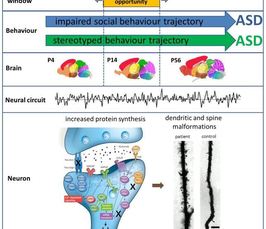Dissecting Autism heterogeneity in developing mice
MPI Psy Tuesday Seminar
- Date: Oct 27, 2015
- Time: 03:00 PM - 04:00 PM (Local Time Germany)
- Speaker: Prof. Martien Kas
- Department of Translational Neuroscience, Brain Center Rudolf Magnus, University Medical Center Utrecht, The Netherlands
- Location: Max Planck Institute of Psychiatry
- Room: Lecture Hall
- Host: Alon Chen

However, ASD is a highly heterogeneous disorder with respect to severity and variability of symptom expression; some patients show predominantly stereotyped behaviours whereas others may have mainly deficits in social behaviour development. As human genetic studies have identified over 200 ASD risk genes, the challenge is to understand how these gene defects lead to individual variation in impaired social interaction and/or stereotyped behavior. By implementing a longitudinal behavioural test battery in mice, we have shown that genetic mouse models for ASD displayed different characteristics of impaired social interaction or stereotyped behaviour at different stages in development. Understanding these neurodevelopmental trajectories may open up the possibility of reversing these core phenotypes by means of adequate therapeutic strategies.